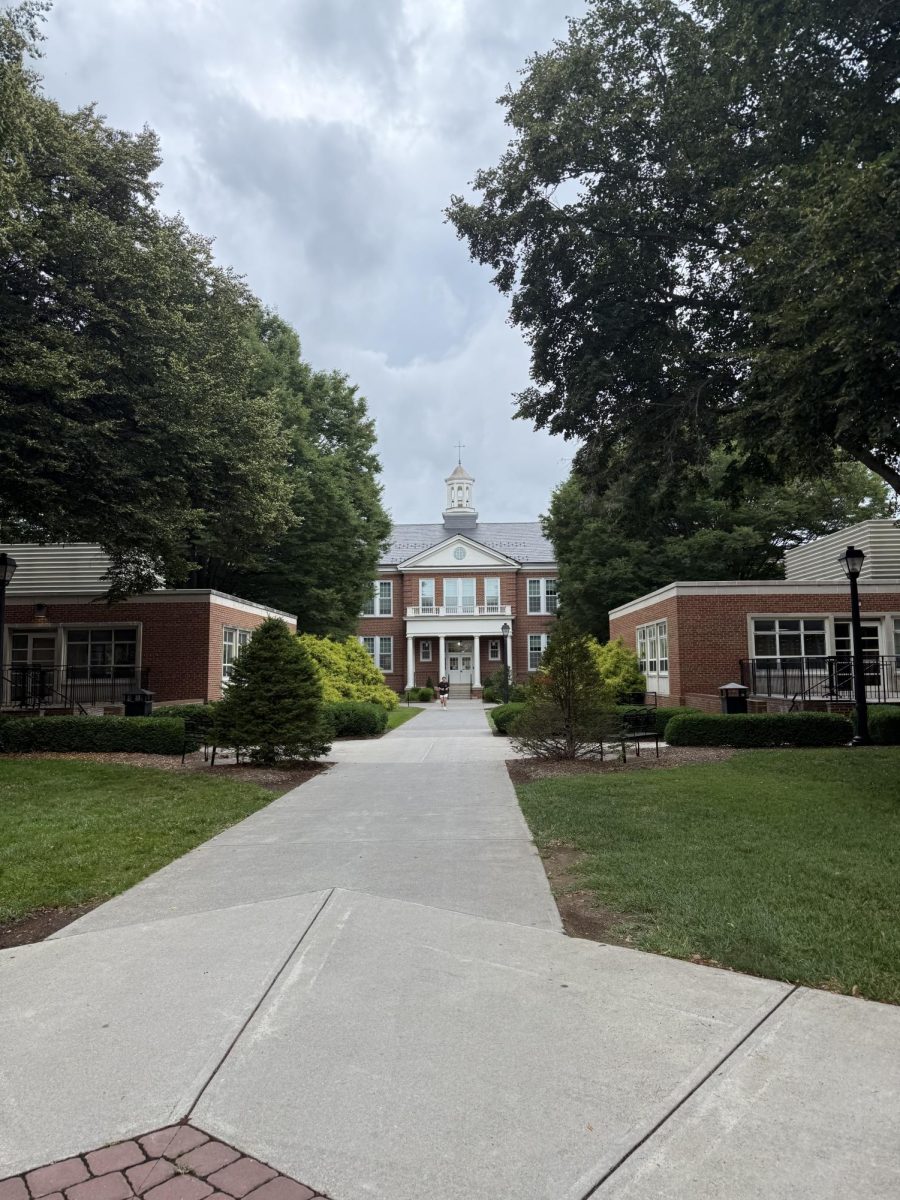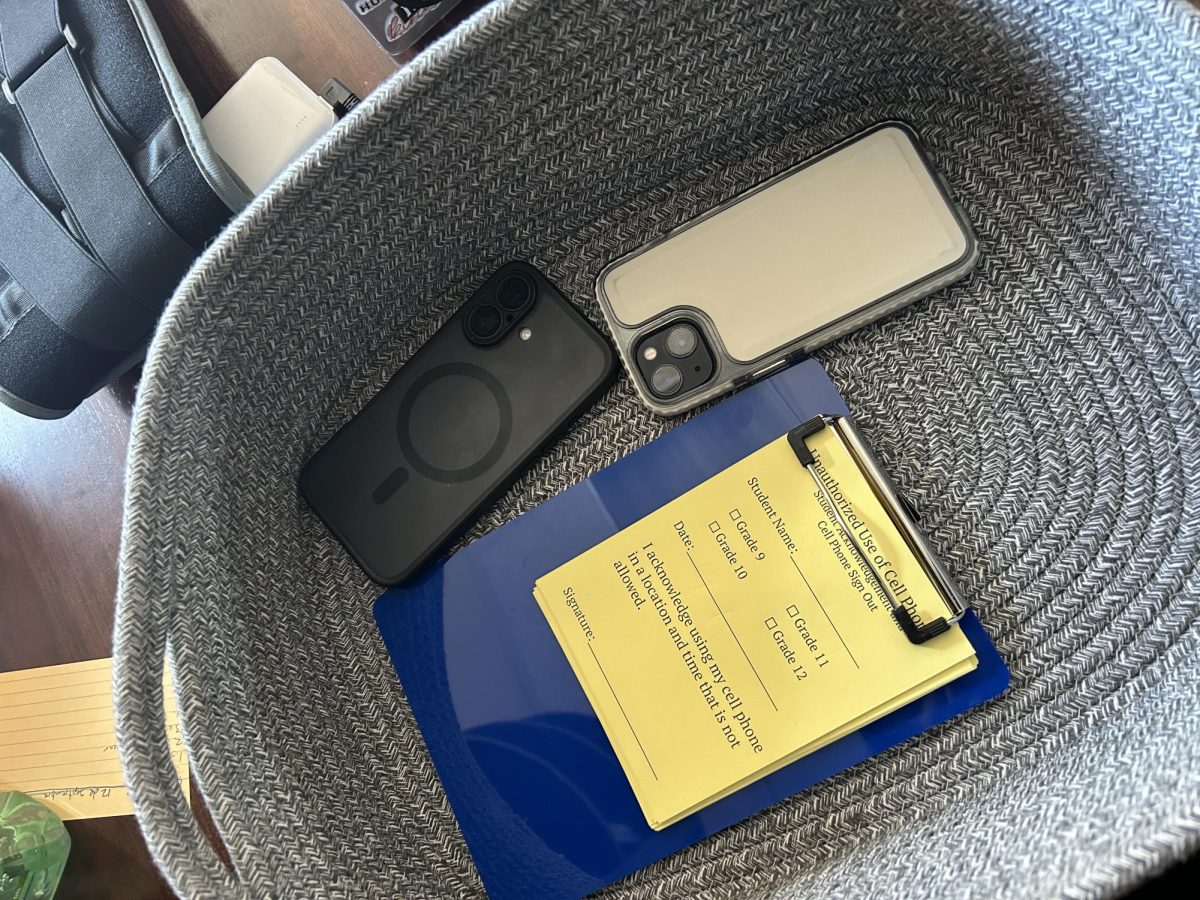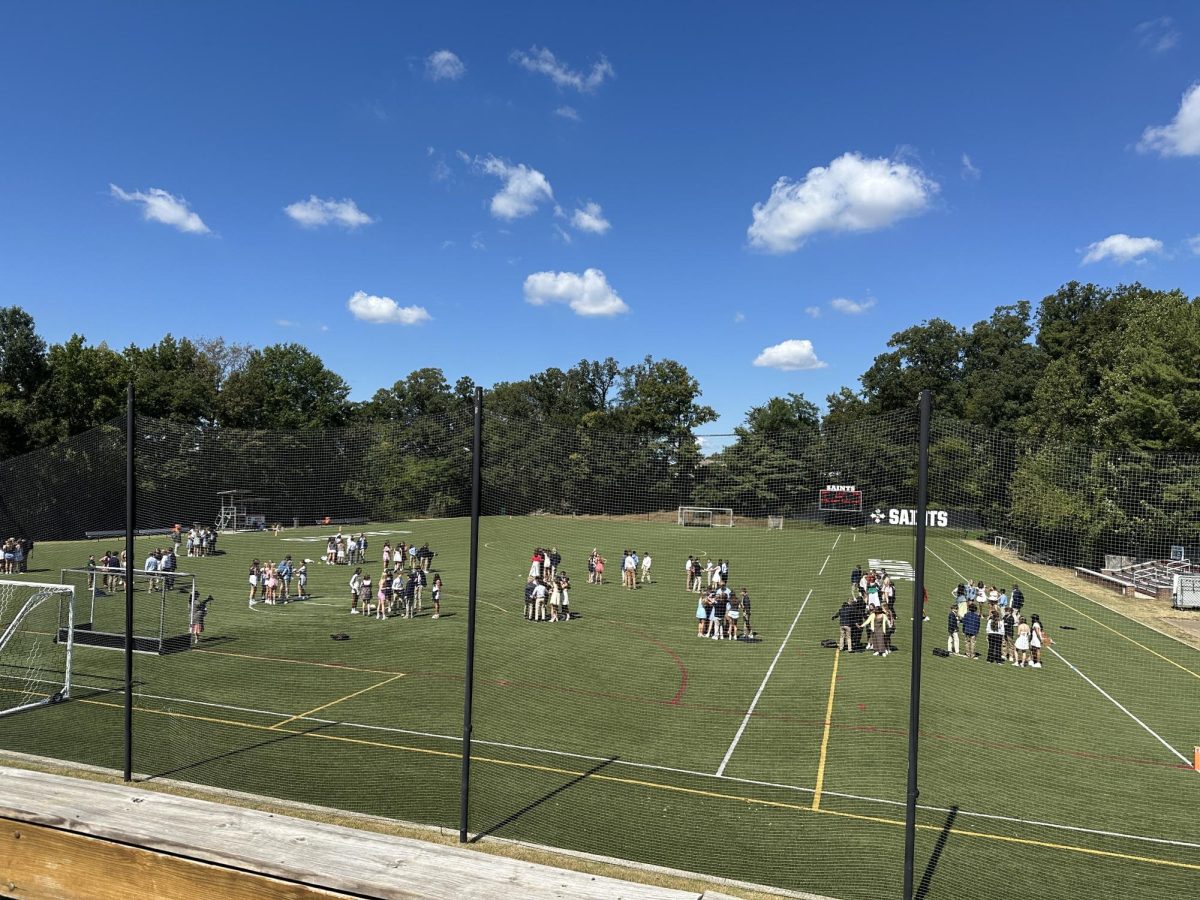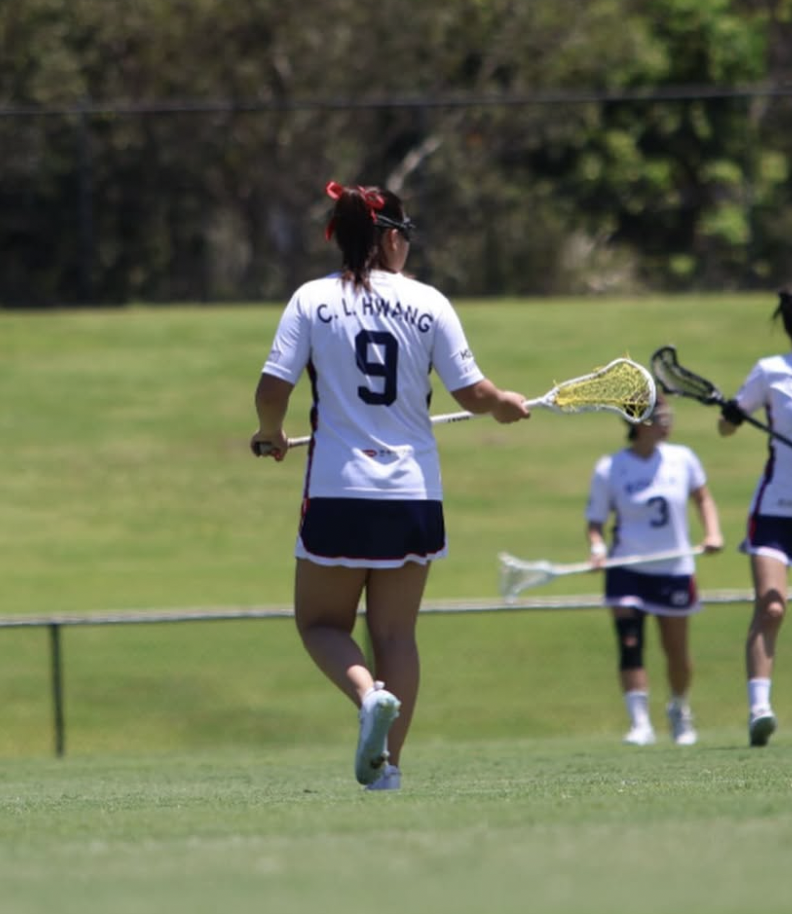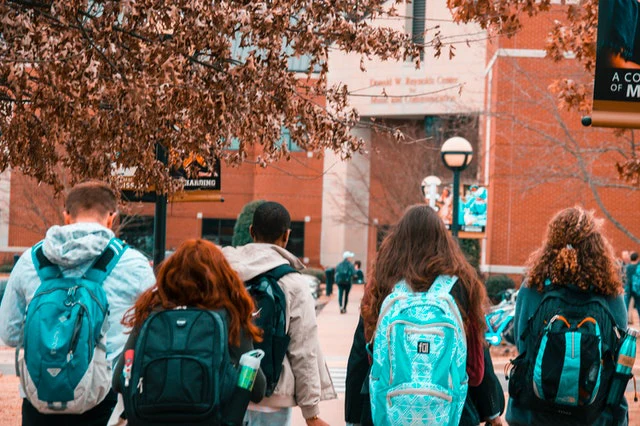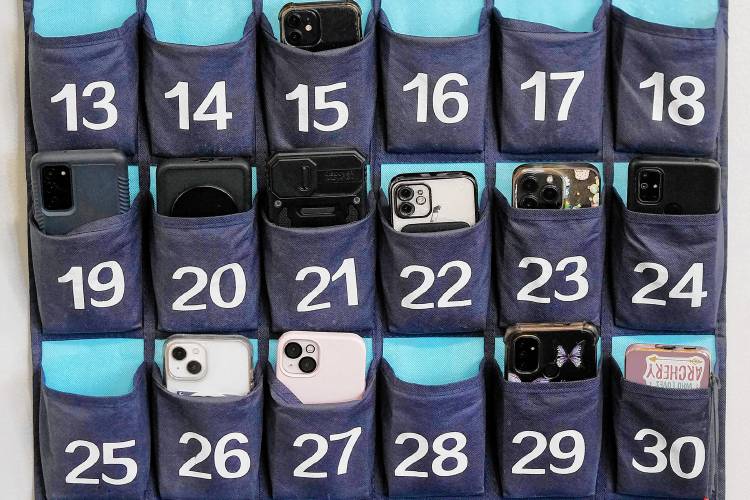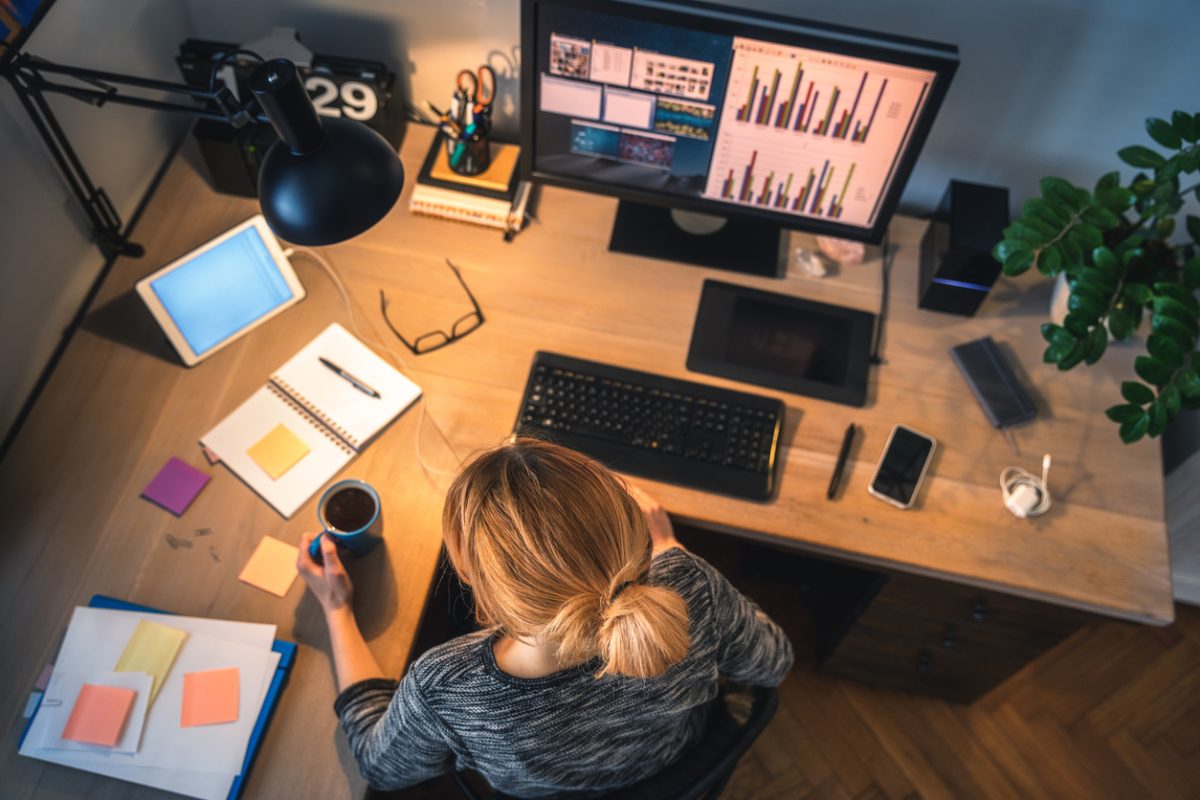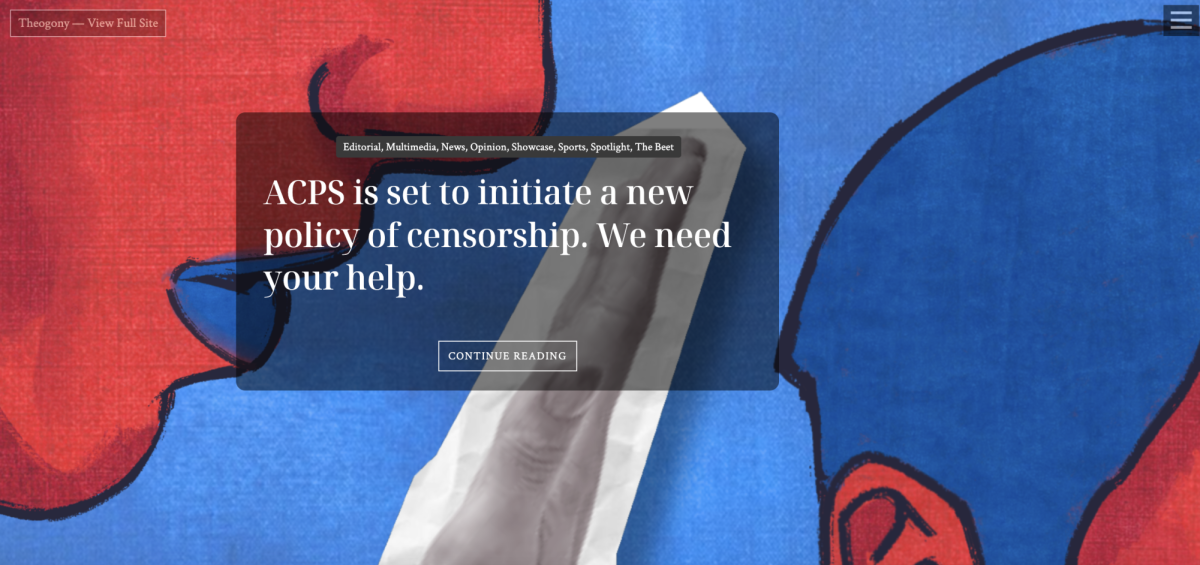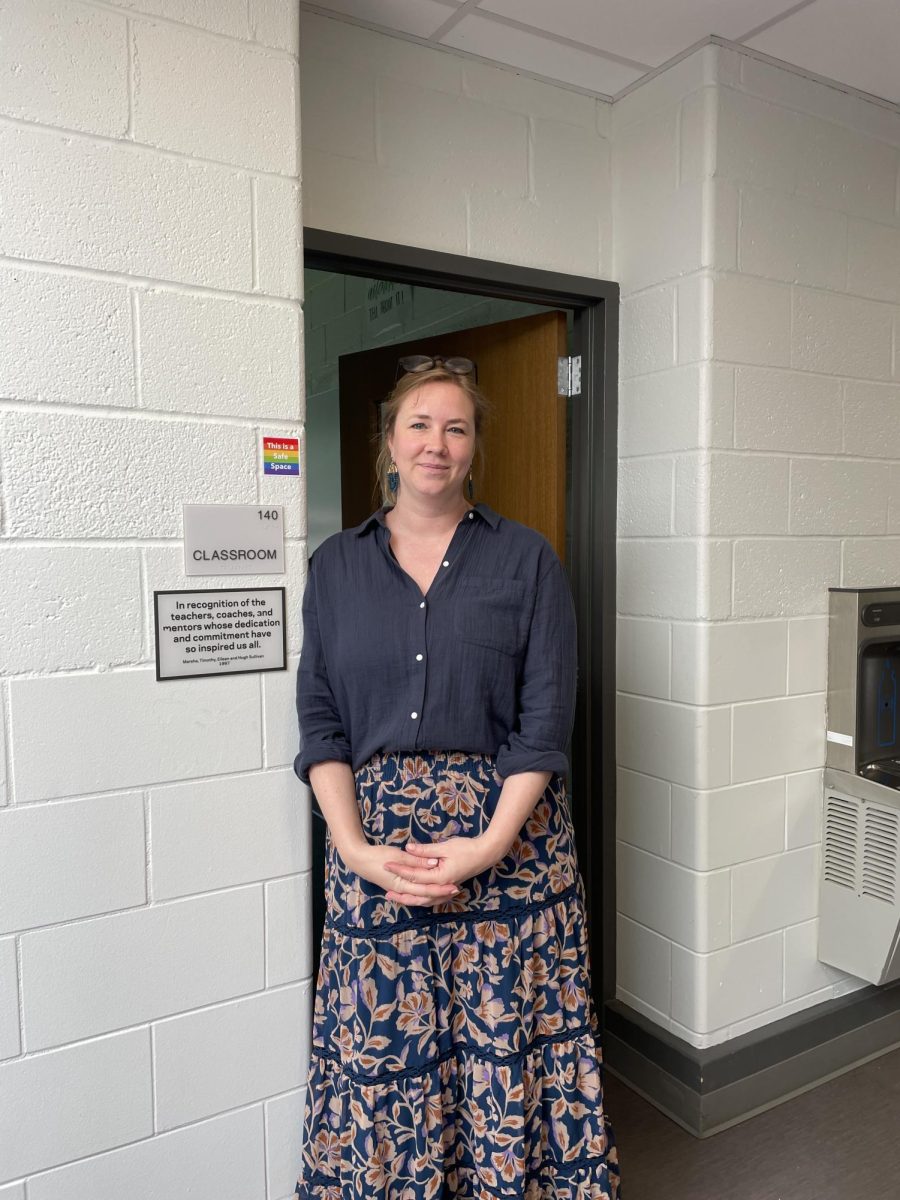Every student feels the need to check their phone throughout the school day–texting a parent, sending a Snap in the hallway, scrolling during a free period–but the new bell-to-bell phone policy at the Upper School fully restricts them from doing so. Between the hours of 8:20 and 2:35/2:50, students are required to have their phones tucked away in their backpacks and in holders in classes. Last year, the school piloted a seven-week phone ban, ultimately allowing access to phones outside of class during lunches and free periods. But now there are no exceptions.
Senior Slye Miller stated that she felt “pretty shocked” when she heard of the new policy. The school announced on Orientation day at the end of August that there would be a full bell-to-bell restriction on phones. There have been mixed reviews on how the school approached the phone ban. Some students like the ban, saying that it helps them be more present and productive. Others have plainly stated that they hate it because it is “too restrictive.” Students largely agree that not being allowed to have phones during free periods is ineffective.
“I agree that we should have more freedom during lunch– it’s hard to communicate with your friends where you’re sitting or if you’re going off campus,” explained senior Greer Mallos.
While the students may see it as a struggle, the faculty are trying hard to show the benefits. Associate Dean Profe. Gilbert shared the reasoning behind the policy, stating that studies have exposed how much phones negatively impact teens. He added that during school hours, it is important for the school to take action to protect students against this.
“We’ve got enough evidence that shows this is not a good thing for our young people. Therefore, we’re going to step in and take action,” he said.
Gilbert compared phone culture to infamous Joe Camel ads in the 90s for Camel cigarettes. These ads used cartoon characters and bright colors to portray smoking as cool and pleasing. Camel was condemned for this advertising because kids were more inclined to smoke cigarettes by watching them. Similarly, governments in Europe have done studies on phone usage and the specific algorithms used to hook teens in. Gilbert emphasized that companies like TikTok and Instagram don’t care about the well being of teen users; they care about financial benefit.
“They’re not even thinking about the safety of young people. Young people are more vulnerable and susceptible to these tricks and traps that are online,” Gilbert explained.
Last year, at the start of the seven-week, reduced-access phone policy, Upper School Director Mr. Mallett felt nervous about taking away the phones. The extent to which students were on their phones before the policy made him believe there would not be a strong compliance. He expressed his shock with how well students adapted to the change with little time to get used to it. Each week, infraction points decreased more and more, and eventually there were spans of days with no cell phone infractions at all. This school year, there have been fifteen cell phone infractions, as of September 25, exhibiting students’ strong cooperation with the policy.
Mr. Mallett continued on to talk about the increase of laptop usage and screen mirroring as a result of the restriction on phones. Students are able to download apps like Snapchat and Instagram where they can send chats and scroll without being caught. Despite the fact that students have the power to do this, laptops will not be taken away. They are an important resource in classes when used properly.
“[The laptop] is a tool of learning. This is not going anywhere. The phone necessarily isn’t a tool of learning unless it’s used for things like world language classes or art classes,” Mr. Mallett said.
Similarly to Profe. Gilbert, Mr. Mallett agreed that during school hours, it is important for administrators to protect students from harmful algorithms that occupy an excessive amount of space in their minds.
“If it represents a distraction, interferes with learning, and it could be detrimental to their health, I wonder what responsible stewards of the school administrators would be if we think it’s a good idea to have phones.”
Dean of Students Ms. McGuire shared her experience visiting former Associate Head of the Upper School Dr. McDaniels, where she now serves as the Head of the Upper School at Bullis. McGuire found that “they had student lounge areas, which were loud and boisterous, and we did not have loud areas like that. We had really quiet areas, even during times when people were free. It felt so quiet, which was strange.”
Although the phone ban is restrictive, it has been put in place by the school to protect students’ mental health and foster more in-person connection within the student body and faculty.
As Ms. McGuire shared, “We all lived in a world without Tiktok, and we were fine. We were better than fine. We lived in a world without Instagram. We were fine.”
